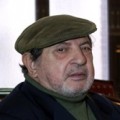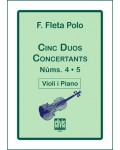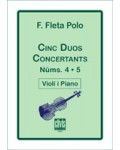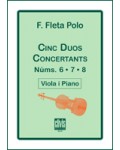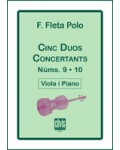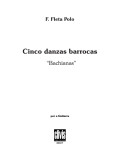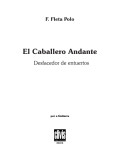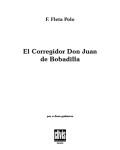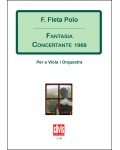
No products
Prices are tax included
Product successfully added to your shopping cart
There are 0 items in your cart. There is 1 item in your cart.
- English
- Castellano
- Català
Francisco Fleta Polo was born in 1931 in Barcelona. He attended the Barcelona Conservatory for Advanced Studies in Music where he obtained an advanced certificate in the Violin, Viola and Trumpet qualifications and trained as a Composer and Conductor.
He played the viola in the Symphonic orchestras of the Gran Teatre del Liceu, Barcelona’s opera house (1961-64), RTVE, the Spanish state broadcasting company, (Madrid 1965-69) and the City of Barcelona (since 1970). He was selected for the post of Viola Professor at the Barcelona Conservatory for advanced studies in music in a national eliminatory exam.
Hi has a very wide catalogue of works for several instruments and instrumental ensembles which have played by several generations of students in the course of their music studies. These works were written with his students in mind. He has also composed works for orchestra including four symphonies; the second and the third were first played in public by the Barcelona Symphonic orchestra and the fourth by the Barcelona Municipal Band. His Sonata for the Viola op.69 was chosen to be played at the International Viola Congress in Illinois (USA). For his students he has designed a highly successful practical course for the Viola and Violin. Most of his works are edited by this company (Clivis Publicacions).
His music is rich in counterpoint and timbre effects which give it a very unique air of genius.
-
Cinc duos concertants 4 - 5
Edition: DigitalShort but intense and expressive works which move trough different feelings, tempos and rhythms.
11,05 € -
-
Cinc duos concertants 6 - 7 - 8
Edition: DigitalThey are short but intense, expressive and idiomatic works which move through different airs, tempos and rhythms. These five duos are dedicated to his good friend and viola performer, Abili Fort.
13,31 € -
-
Cinc duos concertants 9 - 10
Edition: DigitalThey are short but intense, expressive and idiomatic works which move through different airs, tempos and rhythms. These five duos are dedicated to his good friend and viola performer, Abili Fort.
11,50 € -
-
-
-
-
-
-
Fantasia concertante 1968
Edition: PrintedThe piece Fantasia Concertante, which is structured as a single movement, fits perfectly into the fantasia genre: a free discourse from the solo instrument which, in spite of being based on an initial theme, includes various themes by way of improvisation.
36,30 €

